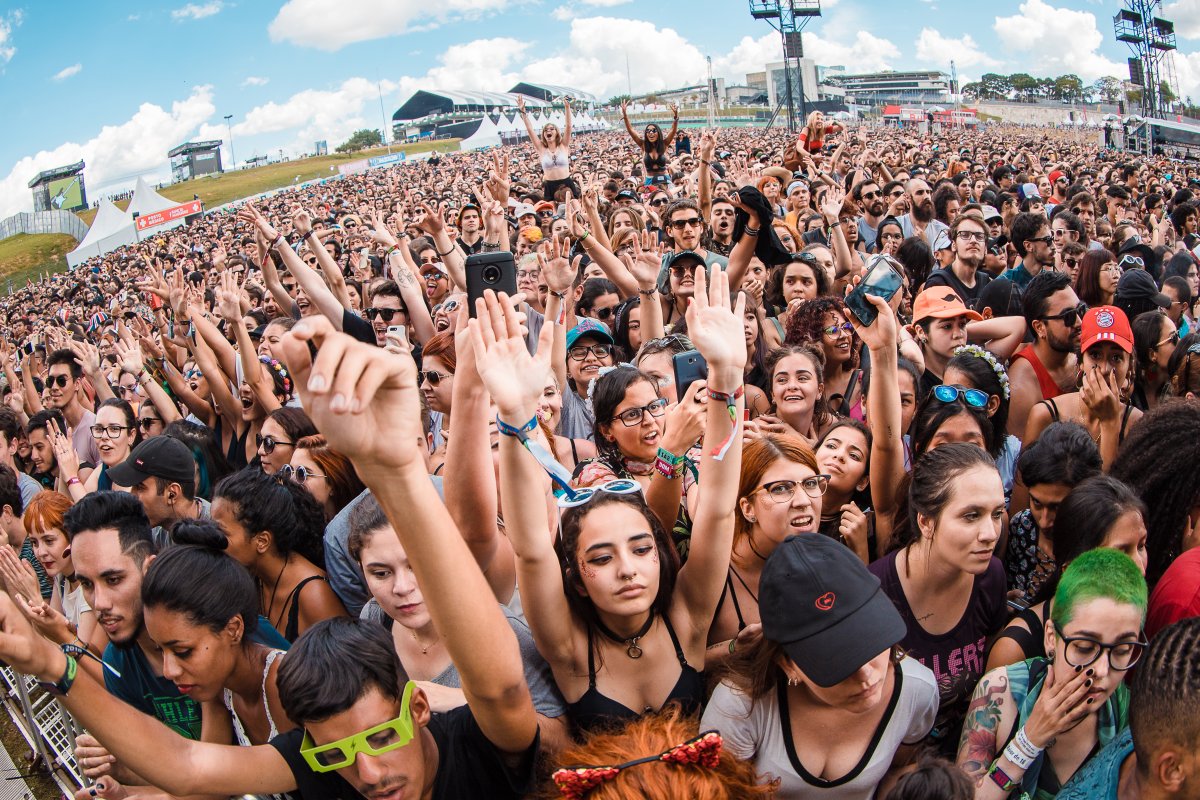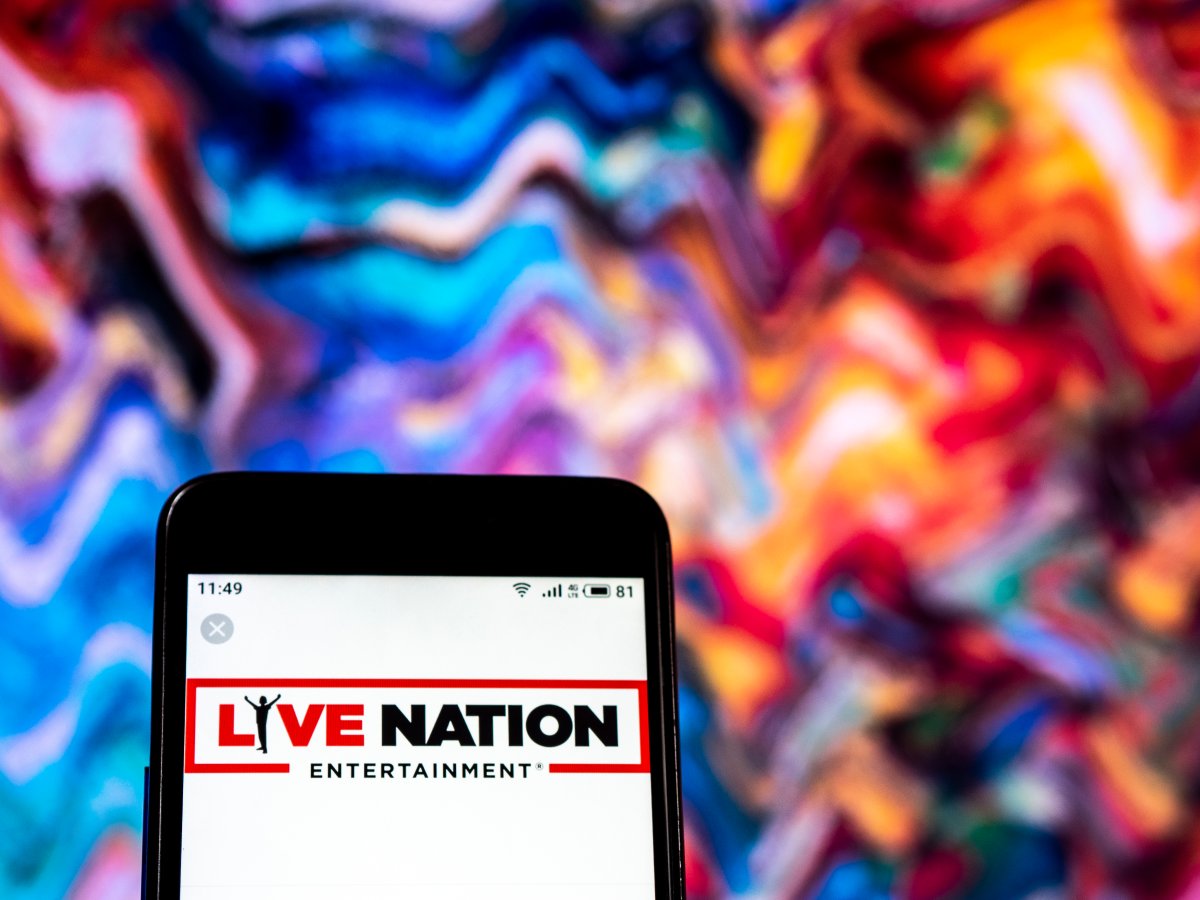In the midst of the ongoing coronavirus pandemic, Saudi Arabia’s sovereign wealth fund has purchased a US$500 million stake in Live Nation, the multi-billion-dollar entertainment company that owns Ticketmaster.

On Monday, the Public Investment Fund (PIF), disclosed the investment — comprised of more than 12.3 million shares — in a filing with the Securities and Exchange Commission, as reported by the Hollywood Reporter (THR).
The 5.7 per cent stake makes PIF Live Nation’s third-largest stockholder overall. Liberty Media, which owns 33 per cent, is currently the largest.
As a result of the novel coronavirus, Live Nation has taken a massive hit on the stock market, since a majority of its summer 2020 events across the globe have been either postponed or cancelled altogether to mitigate the spread of COVID-19.
On Monday morning, the media giant’s shares were sitting close to $39 — down 45 per cent from April 27, 2019 — according to Variety.
The outlet reported that in mid-February, only weeks before the company was essentially put on pause, its shares were worth more than $75 on average.
Live Nation wasn’t the PIF’s only investment this week. Additionally, it put a $775 million stake in Carnival Cruises, the Florida-based international cruise line.
Despite the PIF not making comment on either investment, Yassir al-Rumayyan, head of the PIF, expressed interest in many different “investment opportunities” earlier this week, according to Reuters.

He suggested the sovereign wealth fund would look at buying into the aviation, oil, gas and entertainment industries once the global health crisis ends.
“There will be economies up and running, we will see a lot of potential,” said Rumayyan.
So why has Saudi Arabia invested in Live Nation and Carnival Cruises? Well, that hasn’t been explicitly addressed by the PIF, however, it’s likely that stocks will be on the rise after the pandemic eases.
In the last couple of years, the country has been working hard to boost levels of tourism. Live events and concerts have been part of that effort, according to THR.
However, it’s regularly regarded as controversial for artists to perform in the Middle Eastern nation as a result of its human rights record.
In a July 2019 interview with The Associated Press, the longtime CEO of the Human Rights Foundation (HRF) insinuated that the Saudi government uses world-renowned musicians and events to divert the attention of the nation from important issues such as human rights. Thor Halvorssen said the country’s “atrocious human rights record” includes intense oppression against women, or “gender apartheid.”
Additionally, there have been reports of torture involving several women’s rights activists currently in Saudi detention.
Gender segregation between single men and women has been enforced heavily in public spaces in Saudi Arabia, from restaurants to educational institutions — and, more recently, concerts — according to the Associated Press.
While a number of international artists, including the Black Eyed Peas and Rihanna, have performed in Saudi Arabia, K-pop sensation BTS became the first act ever to hold its own solo concert at a stadium in the country last October.
The seven-piece played the 68,000-plus-capacity King Fahd International Stadium in Riyadh, the country’s capital, on Oct. 11, 2019. BTS was criticized by many fans and human rights activists.
A plethora of different bands and artists, including Janet Jackson, 50 Cent, Chris Brown and Mariah Carey, were also subject to controversy after playing shows in the country.
Carey, 50, became the first international woman to perform in Saudi Arabia in January 2019. The other three artists were part of the debut Jeddah World Fest last summer.
The music festival was initially set to feature rapper Nicki Minaj as a headlining artist, however, she dropped out after a massive backlash, citing human rights concerns as part of the reason behind her decision.
The Megatron rapper said she wanted to show support for women’s rights, gay rights and freedom of expression, among other things.
Halvorssen said Saudi King Salman bin Abdulaziz Al Saud‘s son, Crown Prince Mohammed bin Salman, used Jeddah World Fest and other things — such as the opening of Saudi Arabia’s first movie theatre — as a “sophisticated campaign of distraction” from the brutal happenings within the “ultra-conservative kingdom.”
The HRF issued a statement condemning the artists who performed at the music festival.
“It’s clear that, after losing Nicki Minaj on the basis of the Saudi regime’s atrocious human rights record and their treatment of women and the gay community, the Crown prince has chosen to spend whatever it takes to give the appearance that things are normal and that this is just another concert.”
“Except it isn’t,” added Halvorssen. “It’s a blatant public relations push on the heels of the premeditated assassination of a Washington Post columnist and the ongoing imprisonment of dozens of human rights activists.”
The HRF leader was referring to the murder of late Washington Post journalist Jamal Khashoggi. The Saudi-born dissident was killed in Turkey on Oct. 2, 2018 by agents working for the Crown prince.
Since Khashoggi’s execution, many firms — excluding Live Nation — have been reluctant to accept investments from the PIF to avoid controversy, according to THR.
Questions about COVID-19? Here are some things you need to know:
Health officials caution against all international travel. Returning travellers are legally obligated to self-isolate for 14 days, beginning March 26, in case they develop symptoms and to prevent spreading the virus to others. Some provinces and territories have also implemented additional recommendations or enforcement measures to ensure those returning to the area self-isolate.
Symptoms can include fever, cough and difficulty breathing — very similar to a cold or flu. Some people can develop a more severe illness. People most at risk of this include older adults and people with severe chronic medical conditions like heart, lung or kidney disease. If you develop symptoms, contact public health authorities.

To prevent the virus from spreading, experts recommend frequent handwashing and coughing into your sleeve. They also recommend minimizing contact with others, staying home as much as possible and maintaining a distance of two metres from other people if you go out.
For full COVID-19 coverage from Global News, click here.
— With files from Reuters









Comments